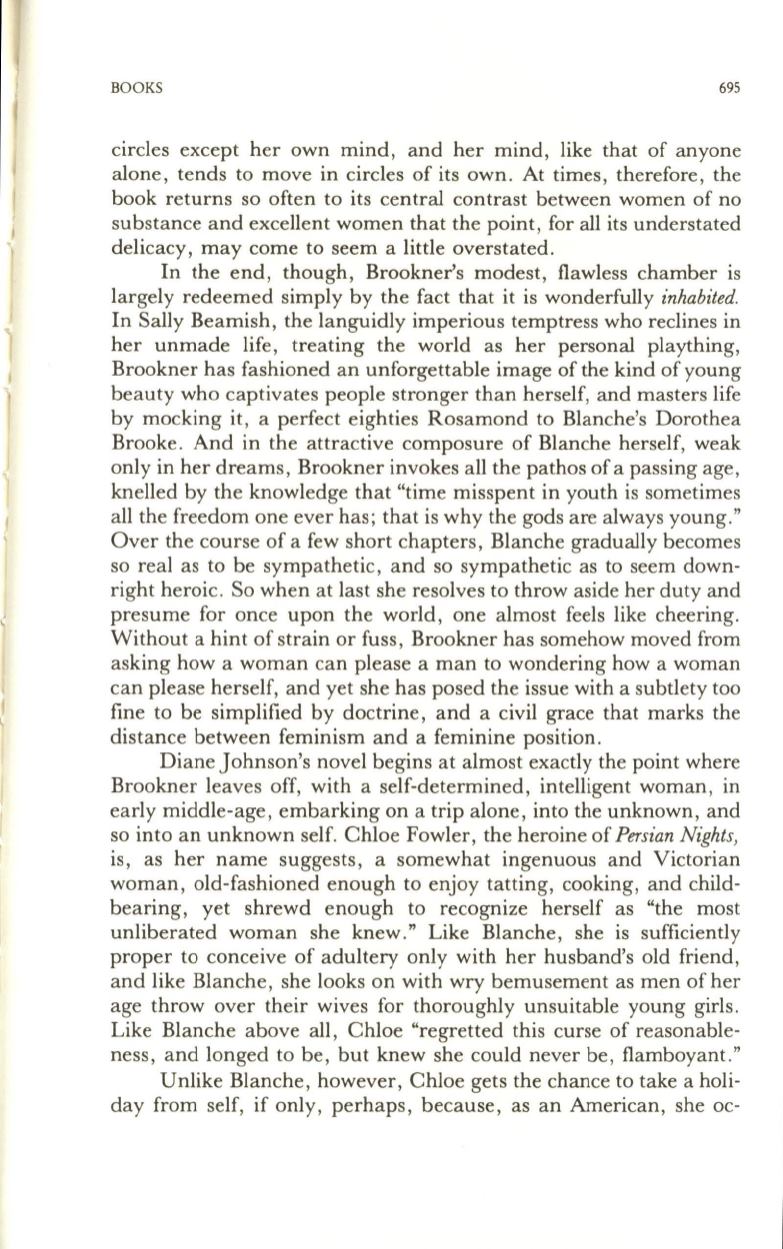
BOOKS
695
circles except her own mind, and her mind, like that of anyone
alone, tends to move in circles of its own. At times, therefore, the
book returns so often to its central contrast between women of no
substance and excellent women that the point, for all its understated
delicacy, may come to seem a little overstated.
In the end, though, Brookner's modest, flawless chamber is
largely redeemed simply by the fact that it is wonderfully
inhabited.
In Sally Beamish, the languidly imperious temptress who reclines in
her unmade life, treating the world as her personal plaything,
Brookner has fashioned an unforgettable image of the kind of young
beauty who captivates people stronger than herself, and masters life
by mocking it, a perfect eighties Rosamond to Blanche's Dorothea
Brooke. And in the attractive composure of Blanche herself, weak
only in her dreams, Brookner invokes all the pathos of a passing age,
knelled by the knowledge that "time misspent in youth is sometimes
all the freedom one ever has; that is why the gods are always young."
Over the course of a few short chapters, Blanche gradually becomes
so real as to be sympathetic, and so sympathetic as to seem down–
right heroic. So when at last she resolves to throw aside her duty and
presume for once upon the world, one almost feels like cheering.
Without a hint of strain or fuss, Brookner has somehow moved from
asking how a woman can please a man to wondering how a woman
can please herself, and yet she has posed the issue with a subtlety too
fine to be simplified by doctrine, and a civil grace that marks the
distance between feminism and a feminine position.
Diane Johnson's novel begins at almost exactly the point where
Brookner leaves off, with a self-determined, intelligent woman, in
early middle-age, embarking on a trip alone, into the unknown, and
so into an unknown self. Chloe Fowler, the heroine of
Persian Nights,
is, as her name suggests, a somewhat ingenuous and Victorian
woman, old-fashioned enough to enjoy tatting, cooking, and child–
bearing, yet shrewd enough to recognize herself as "the most
unliberated woman she knew." Like Blanche, she is sufficiently
proper to conceive of adultery only with her husband's old friend,
and like Blanche, she looks on with wry bemusement as men of her
age throw over their wives for thoroughly unsuitable young girls.
Like Blanche above all, Chloe "regretted this curse of reasonable–
ness, and longed to be, but knew she could never be, flamboyant ."
Unlike Blanche, however, Chloe gets the chance to take a holi–
day from self, if only, perhaps, because, as an American, she oc-


